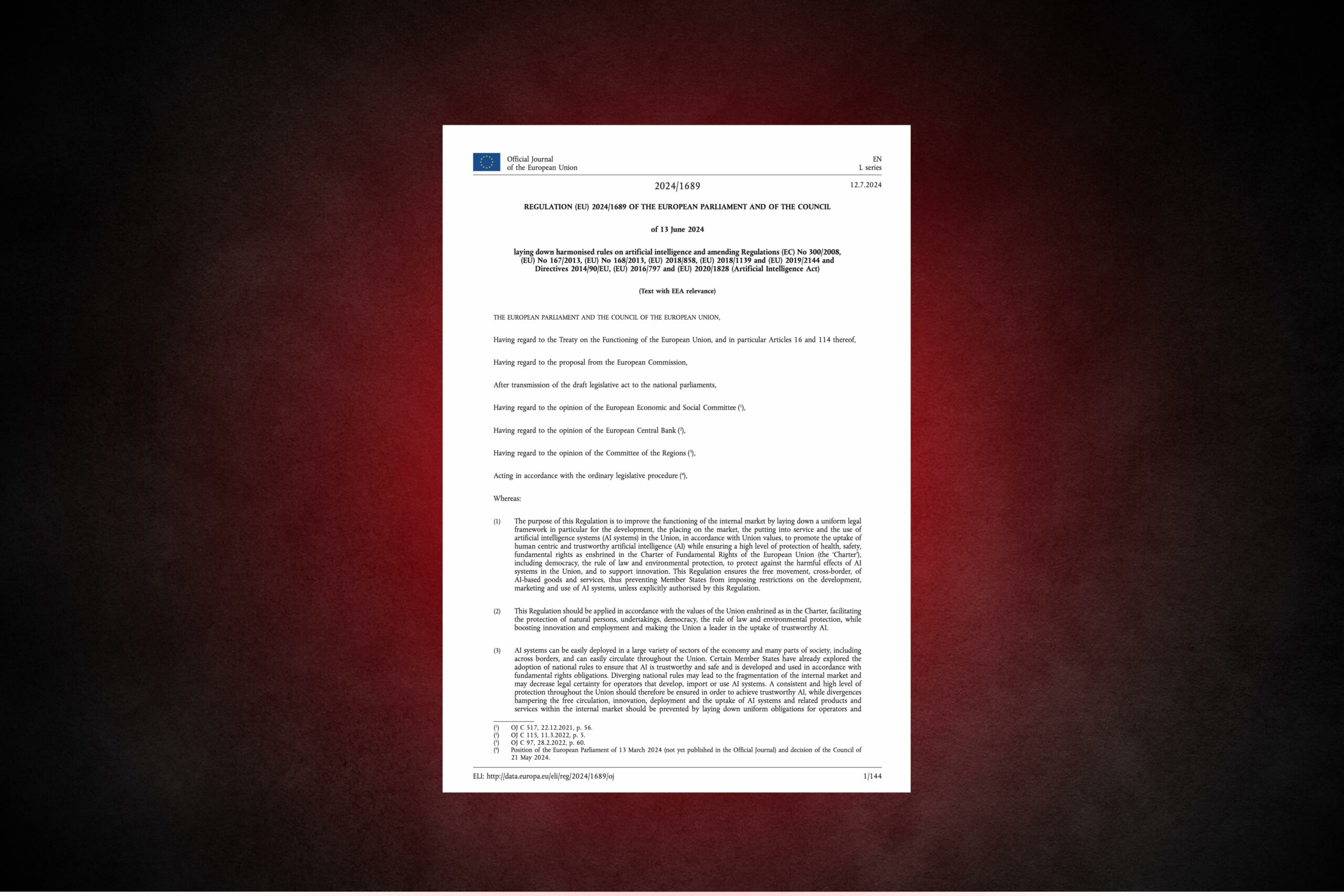Dear readers,
As previously announced, I am incredibly happy and honored to publish guest articles written by the world’s most renowned antitrust scholars every month of the year 2020. The one for September is authored by Nicolas Petit, Joint Chair in Competition Law at the European University Institute, and the Robert Schuman Center for Advanced Studies. In it, Nicolas explores the incipiency attitude in EU antitrust law when it comes to digital markets. I am confident that you will enjoy reading it as much as I did. Nicolas, thank you very much!
All the best, Thibault Schrepel
****
Digital Markets and the Incipiency Attitude in EU Antitrust Law
A persistent attitude in European Union (“EU”) antitrust law is to prefer to address market power failures that are hard to diagnose ex-post with ex-ante rules and institutions. When the costs, and uncertainties, of ex-post verification, are too high, EU antitrust law tends to fall back on incipient control of market power failures. Deduction dominates induction. Inference prevails over the search for evidence. And the use of presumption supplants empirical observation. I call this the incipiency attitude.1In US antitrust law, incipiency means the provision of liability theories and remedies for conduct or transactions that presents a “dangerous likelihood” of anticompetitive infringement when “fully grown”. The incipiency theory is the bedrock of several U.S. antitrust statutes including section 7 of the Clayton Act and the Celler Kefauver Act, which set out a merger control system; section 5 of the Federal Trade Commission Act, which outlaws trade restraints that threaten to become a Sherman Act violation; and section 2 of the Sherman Act, which declares unlawful attempted monopolization. See Jesse W. Markham, Lessons for Competition Law from the Economic Crisis: The Prospect for Antitrust Responses to the “Too-Big-to-Fail” Phenomenon, 16 FORDHAMJ. CORP. & FIN. L., 261, 295 (2011).
The incipiency attitude is intellectually fascinating. If EU antitrust law cannot diagnose an existing market power failure, how can it predict one in the future? But the incipiency attitude also raises an interesting question of legal methodology. If the EU Treaty provisions in general, and Article 102 TFEU in particular, provide for an antitrust system based on ex-post control of monopoly power, do they by implication set limits to the incipiency attitude?
Incipiency attitude
The incipiency attitude runs deep. In past decades, EU law has accepted to develop antitrust rules and institutions to prevent market power failures that it admittedly struggles to diagnose, and marginally used Treaty instruments designed to eliminate observed market power failures.2I discuss here the case of EU law applied by the European institutions, noting that national agencies (in particular the French and German ones) have been much more active in developing application of EU law against observed market power failures. Actual excessive pricing denoting naked monopoly rents is never established by reliance on empirics. The issue is treated by preventive application of exclusionary conduct or merger laws, and the prohibition of exploitative conduct set out in Article 102 TFEU a) remains a dead letter (at EU level). The same is true of tacit collusion concerns. Conscious parallelism in oligopoly is subject to probabilistic assessment under merger law or by indirect control of facilitating practices under Article 101 TFEU, in neglect of the potentialities offered by the prohibition of abuse of collective dominance. Last but not least, heavy reliance on the hopelessly empty doctrine of “likely effects” has allowed expansive findings of liability in the name of incipient exclusionary conduct, including in markets where realized aggregate output had grown.
Today, a new development of the incipiency attitude is visible. One of the EU Commission (“EC”)’s ideas for digital markets is to prevent “structural risks for competition”, by “early” agency intervention against “tipping” under a New Competition Tool (“NCT”). Another idea on the EC table entails the adoption of a Digital Services Act (“DSA”) providing for a per se prohibition rule against predetermined practices of gatekeeping platforms like self-preferencing.
Method
The main legal issue facing the EC plans is not doctrinal. There is no question that statutory or judicial law can add (or discard) preventive theories to the antitrust arsenal. The issue is one of method. Widely overlooked is that the EU Treaty already formulates a default policy of prevention of market power failures. The policy is this: by allowing “direct control of performance”, the Treaty seeks to ensure prevention of anticompetitive exclusion. As René Joliet put it in 1966:
“A dominant firm has no interest in consolidating its position by resorting to exclusionary practices, for if it does, it will not be in a position to exploit its power and to gain advantages …, since it can be subject to direct price and output regulation. Its power can be neutralized”.
The point here is not rehabilitation of Joliet’s failed argument whereby EU substantive law only covers cases of improper exploitation of market power. The Court nullified this intellectual interpretation in the 1970s. The more subtle point is that Treaty law considers a policy of ex-post prevention by dissuasion equally as admissible as a policy of ex-ante prevention by precaution as foreseen under the NCT and DSA.
Prevention by dissuasion v. precaution?
This descriptive point defines the limits of the incipiency attitude. Leaving aside the case of catastrophic harms,3Catastrophic harms might be present in some cases of “killer mergers”, or to take a better word, in cases of acquisition and shutdown of a nascent competitor. antitrust law’s preference for ex-ante or ex-post prevention requires an evaluation of the tradeoffs between risks of false positives due to imperfect information in the prevention by precaution case and the risks of false negatives due to delayed and costly implementation in the prevention by dissuasion case.
This is no easy task. To see this, consider the example of the EC’s ambition to prevent the emergence of gatekeeper positions ex-ante by focusing resources on “tipping markets”, rather than to reduce monopoly rents ex-post in tipped markets (as I argue in an upcoming book on big tech and the digital economy). False positives abound. Fierce competition takes place for the market during the tipping phase. And tipping removes duplication, fragmentation, and uncertainty that delays the entry of developers and user adoption. Moreover, if the general characteristics of a market that is tippy are easy to conjecture in advance, the identity of the firm that will tip the market is uncertain. As Brian Arthur has demonstrated, random events play a key role in the selection of a dominant design. To be sure, we may envision an antitrust agency or court intervening like a knight in shining armor, just before “tipping”. However, this unrealistic scenario demands unattainable agility from decision-makers.
By contrast, little effort has gone into evaluating the implementation costs incurred ex-post in trying to reduce naked monopoly rents in tipped markets. These costs entail an appropriate diagnosis of actual tipping – defined by the EC as a situation of “complete elimination of competition”4See General Court, Microsoft v Commission, ECLI:EU:T:2007:289 at §1019. – but also application of direct and more importantly indirect controls over monopoly rents. It is not a given that these costs, and uncertainties, outweigh the false positive costs of ex-ante remedies.
The Brussels Paradox?
The incipiency attitude leads to a paradox in the contemporary development of EU antitrust policy. The paradox is this: EU substantive law is a “modern restatement” of US antitrust law with “improvements and adaptations”, as James Rahl once wrote. Yet contemporary policy initiatives discount the margin of flexibility offered by the EU law and look at the US for inspiration. In its proposal for an NCT, the EC talks of “monopolization strategies”, in direct consideration of the language of Section 2 of the Sherman Act. The upside is clarity about intentions. The downside is inconsistency, and failed expectations: the US experience shows that substantive incipiency standards are subject to exacting judicial scrutiny by review courts, and nothing prevents EU courts to do the same. At any rate, if there is a “Brussels effect”, as Anu Bradford recently wrote, it cannot be seen in the emerging antitrust policy towards digital markets.
More importantly, we might want to recalibrate our confidence levels towards the incipiency attitude in digital markets. In line with the Treaty antitrust provisions, the approved method of antitrust policy reform also requires agency investments in ex-post empirical verification and control, of achievement and exploitation of monopoly power in digital markets. This process, including appeals, is necessary to understand the merits of alternative prevention by dissuasion v. precaution approaches in the face of the complexities of the digital economy. As I often say, no one should take advice from a lawyer that never went to court, at least several times. A similar guideline should serve the development of substantive EU antitrust policy.
***
Citation: Nicolas Petit, Digital Markets and the Incipiency Attitude in EU Antitrust Law, CONCURRENTIALISTE (September 30, 2020)
Read the other guest articles over here: link








